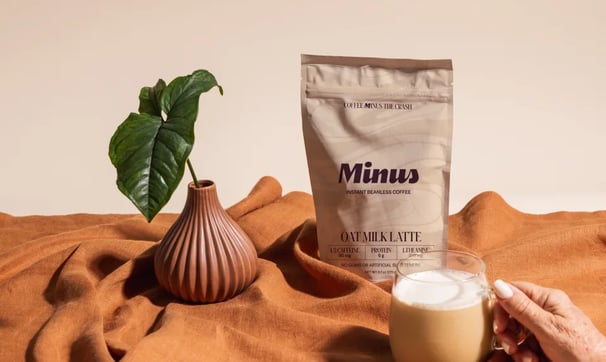Compound Foods’ Sustainable Coffee Alternative From Precision Fermentation
BEVERAGESSUSTAINABILITY


Coffee is one of the most widely consumed beverages globally, with over 2.25 billion cups enjoyed daily. However, the traditional coffee industry faces significant sustainability challenges, including deforestation, high water usage, and substantial greenhouse gas emissions. Compound Foods, a San Francisco-based food-tech startup, is addressing these issues by developing coffee alternatives that replicate the flavor and aroma of brewed coffee without relying on coffee beans. Through precision fermentation and innovative formulations, Compound Foods is redefining the coffee experience with a focus on sustainability and environmental stewardship.
The Challenge of Traditional Coffee Production
Conventional coffee production is resource-intensive and environmentally damaging. Coffee plants are cultivated in the equatorial "coffee belt," where rainforests are often cleared to create plantations. This contributes to deforestation, with 37 of the top 50 deforesting nations being coffee producers. Additionally, producing a single cup of coffee requires 140 liters of water and generates 17 kilograms of CO₂ per kilogram of coffee beans.
Despite these challenges, alternatives to traditional coffee have struggled to gain traction due to the complex flavor profile of coffee, which arises from plant-derived compounds like caffeine, fermentation metabolites such as organic acids, and roasting-induced flavors like melanoidins.
Compound Foods’ Innovation: Coffee Without Beans
Compound Foods’ patent pending approach involves identifying and recreating key flavor components of coffee using sustainable plant-derived ingredients and precision fermentation. The company’s methods, as detailed in their patent, include:
Base Plant-Derived Formulations
A blend of roasted and ground seeds, nuts, and other plant derivatives (e.g., chicory, sunflower seeds, lentils, and malts) serves as the foundation of the coffee substitute.
These ingredients mimic the flavor and aroma of coffee while maintaining sustainability.
Fermentation Technology
Precision fermentation with microbes such as Lactobacillus and Pichia yeast enhances the complexity, acidity, and fruitiness of the coffee substitute.
Fermentation substrates, including fermented coffee cherry fruits, malt extracts, and citrus fruit peels, further refine the flavor profile.
Flavor Optimization
The process incorporates natural flavorants like guaiacol, pyrazines, and furfurylthiol to achieve the authentic taste of coffee.
Taste testers have rated some iterations of the coffee substitute as 80% similar to traditional coffee.
Environmental and Consumer Benefits
The benefits of Compound Foods’ innovations extend far beyond flavor. Their production process uses 94% less water and emits 91% less greenhouse gases compared to traditional coffee farming. By eliminating the need for coffee plants, the method also avoids the risks associated with climate change and fluctuating crop yields. Consumers can enjoy their daily brew guilt-free, knowing they are contributing to a more sustainable planet without compromising on taste.
Market Impact and Future Outlook
In 2021, Compound Foods raised $4.5 million in seed funding, backed by investors like Lowercarbon Capital and Collaborative Fund. Their flagship product, Minus Coffee, launched in 2023 to positive reviews for its flavor and environmental benefits. As consumer demand for sustainable food alternatives grows, Compound Foods is well-positioned to lead a transformation in the coffee industry.
Their patented methods showcase the potential of precision fermentation and plant-based innovations to reduce reliance on resource-intensive agricultural practices. By addressing both flavor and sustainability, Compound Foods offers a compelling solution to the challenges posed by traditional coffee production.
